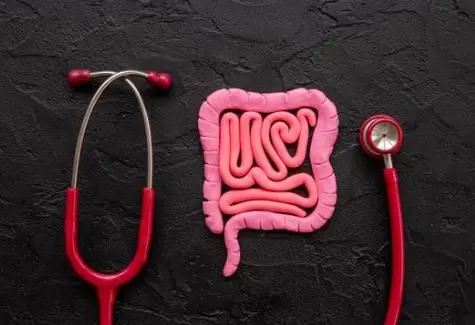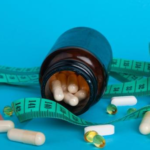What if I said the key to happiness, improved focus, and emotional stability isn’t stuck in your brain—but, rather, lurking in your gut? Yep, that’s right! Recent advancements in science have revealed a stunning link: your gut — your microbiome, as it’s known — may be calling the shots on your mental health.
It sounds crazy at first. After all, we have been trained to think that mental health problems such as anxiety, depression and mood swings are purely the result of chemical imbalances in the brain. But groundbreaking research indicates the true puppet master may be trillions of tiny microbes that live inside your digestive system. Ready to find out how?
The Gut-Brain Axis: Meet Your Second Brain
Here’s where it gets interesting. Your gut is not simply a food-processing machine — it is a highly sophisticated communication hub. Scientists refer to it as the “second brain” because it contains its own complex network of neurons, called the enteric nervous system (ENS). This system has 100 million neurons — more than your spinal cord!
But here’s the kicker: the gut and brain are directly wired together via a superhighway called the vagus nerve. There is a constant stream of information traveling back and forth between the two, forming what experts refer to as the gut-brain axis.
In other words, your gut is in constant conversation with your brain. And who gets to shape that discussion? Your gut microbiome.
The Microbiome: Your Hidden Happiness Supervisor
There’s an entire ecosystem of bacteria, fungi and viruses living inside your gut. The trillions of microbes in there are known as the gut microbiome. It may sound a little bit disgusting, but those miniature organisms are absolutely vital for digestion, immunity, and — surprisingly — mental health.
How does it work?
Some bacteria even make neurotransmitters — the same mood-regulating chemicals your brain does, such as:
-
Serotonin (the “feel-good” hormone)
-
Dopamine (the reward hormone)
-
Glutamate (the stimulating neurotransmitter)
In fact, up to 90% of your serotonin is produced in the gut, not even the brain! So when your microbiome is out of balance, you may suffer as a result and nobe able to feel joy and emotionally stable and relaxed.

Gut Dysbiosis: The Biggest Depression Drug You Never Heard Of
And here’s where it gets scary. Research has revealed that depressed, anxious, and even bipolar individuals frequently harbor imbalanced populations of gut bacteria, known as dysbiosis.
One landmark study published in the journal Nature Microbiology revealed striking differences between the microbiomes of depressed and healthy people. Notably missing or depleted among the depressed group were key strains of bacteria that produce anti-inflammatory compounds and mood-enhancing neurotransmitters.
Even more surprising? When researchers transplanted gut bacteria from humans with depression into germ-free mice, the mice started displaying depressive-like behaviors. As if sadness and fear could be transmitted through gut microbes!
What You Need to Know About Inflammation & Gut Health Hijacking Your Brain
A second stealth assassin linking gut health to mental health is inflammation. When your microbiome is not healthy, harmful bacteria can slip past the gut lining and allow toxins to enter the bloodstream, a phenomenon known as leaky gut.
This activates the immune system, resulting in chronic inflammation around the body and in the brain. High inflammation levels correlate significantly to:
-
Depression
-
Anxiety
-
Brain fog
-
Memory problems
-
Neurodegenerative diseases, even Alzheimer’s
Essentially, a damaged gut makes an inflamed brain, one that can obscure your mood, thought process and emotional stability.
Short-term Stress, the Stress Cycle, and Your Gut
But it doesn’t stop there. Stress and bad mental health can hurt your gut microbiome as well. Chronic stress kills off healthy gut bacteria, increases harmful strains, and damages your gut lining.
This creates a vicious cycle:
-
Stress hurts your gut.
-
A broken gut hampers neurotransmitter production and raises inflammation.
-
Your mood goes down, which adds stress.
-
And the cycle repeats…
So the next time you’re feeling anxious, sluggish or down, it might not just be “in your head” — it could be in your gut.
How to Heal Your Gut and Naturally Improve Your Mood
Now for the good news: Improving your gut health can improve your mental health! Here’s how:
How Can We Feed the Good Bacteria (Prebiotics)
Prebiotics are specialized plant fibers that feed healthy bacteria. Some prebiotic foods that are good for the gut are:
-
Bananas
-
Onions
-
Garlic
-
Asparagus
-
Oats
-
Apples
Incorporating these into your diet daily promotes the growth of beneficial microbes.
Introduce Probiotic Foods
Probiotics are live bacteria that contribute diversity to your microbiome. Some of the best sources are:
-
Yogurt with live cultures
-
Kefir
-
Kimchi
-
Sauerkraut
-
Miso
-
Kombucha
Fermented foods can help restore balance and reduce inflammation.
Avoid Gut Destroyers
Reduce consumption of foods and habits that kill your microbiome, like:
-
Excess sugar
-
Processed foods
-
Artificial sweeteners
-
Chronic antibiotic use
-
Heavy alcohol consumption
These promote the growth of bad bacteria and can lead to gut issues.
Manage Stress Effectively
Given the close connection between stress and gut health, it’s important to practice stress-busting activities such as:
-
Meditation
-
Deep breathing exercises
-
Gentle yoga
-
Spending time in nature
-
Journaling
Lower cortisol levels prevent damage to your microbiome and allow the gut-brain axis to operate without a hitch.
Get Enough Sleep
Sleep deprivation upsets gut bacteria and mental health. Get 7–9 hours of sleep each night. Your microbes have a circadian rhythm of their own, and a peaceful sleep helps maintain balance among them.
Probiotics: Consider a High-Quality Supplement
Food is the best way to support your microbiome, but some folks may benefit from a probiotic supplement — especially after antibiotics or digestive issues. Always check with your health care provider before beginning one.
The Next Frontier in Mental Health Treatment: Your Gut
Now with more research rolling in, scientists are investigating cutting-edge treatments such as fecal microbiota transplants (FMT), psychobiotics (targeted probiotics addressing mood), and personalized microbiome-based treatments for depression, anxiety and even autism.
Envision a world in which doctors do not prescribe antidepressants, but rather, analyze your gut bacteria and recommend specific probiotic strains suited to your mental health needs. It’s not science fiction—it’s already happening in early clinical trials!
Conclusion
Gut-mental health connection too strong to be ignored. Your microbiome does more than help digest food — it’s a critical player in controlling your mood, your response to stress, and your overall emotional well-being. Overlooking your gut may mean overlooking the source of your anxiety, depression, or mental fog.
But the beauty of it is, you can make sure your gut is happy. By adopting clever dietary and lifestyle habits — feeding helpful bacteria, cutting back on stressors, eliminating negative foods — you can take control of your mood and mental acuity naturally.
So the next time you sense a dissonance somewhere in the terrain of your mind, remember: The answer could well be in your belly, not your head.
FAQs
Does Gut health promote us to Reducing Depression And Anxiety?
Yes! Research after research shows the gut microbiome can be balanced by changing your diet, managing stress levels and using probiotics to improve mood and decrease symptoms of anxiety and depression.
Which foods support gut and mental health best?
Prebiotic (garlic, onions, bananas) and probiotic (yogurt, kefir, kimchi) rich foods are great. Fiber-rich fruits, vegetables and whole grains also feed good gut bacteria.
How quickly will my mental health change after changing my gut health?
Some folks feel changes in mood and energy levels in their first few weeks of working on their gut health, but to note a more long-standing impact, it’s suggested to create habits over 2-3 months.
Can we use probiotics instead of antidepressant medications?
If only taking probiotics could cure all mental illnesses, however, probiotics are not a direct substitute for prescribed medications. Always speak with your healthcare provider before altering your treatment.
Does stress have an immediate effect on gut health?
Yes! Mark your calendars — your gut will thank you! Even short-term stress can have a negative impact on your gut bacteria composition. Chronic stress, though, leads to bigger imbalances over time that are associated with mood disorders.




